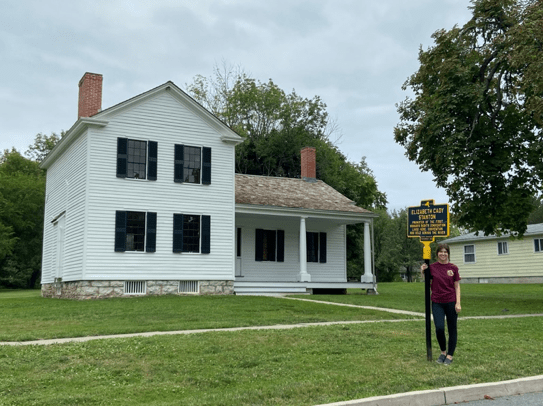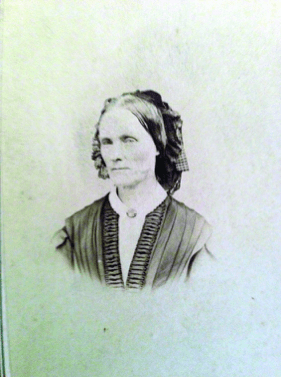Back at Women’s Rights National Historic Park
Written by: Maria Smith
Hi all!
I am so excited to be back at Women’s Rights NHP this summer! Last summer I conducted an oral history with Judy Hart. She was the first superintendent of the Women’s Rights NHP and she played an important role in establishing the Park. This summer, I will transcribe the 30+ hours of oral history to make it accessible for the Deaf and hearing-impaired community. Additionally, I will help to create walking tours for individuals visiting the Park. Women’s Rights related walking tours will eventually be available via the National Parks App. Last summer, I included a fun story about each of the five organizers of the women’s rights convention of 1848 within each of my blog posts. This summer, I will include a fun story about an influential woman within the Central New York region. Today, I will talk about Rhoda Bement.

Rhoda Bement
In the fall of 1843, Rhoda Bement left an antislavery notice for the Reverend of the Seneca Falls Presbyterian Church to read, but two Sundays in a row the minister did not read it. Bement confronted him after a service to ask why. The discussion grew heated, and it turned into a public argument. Bement insisted that if the minister was indeed opposed to slavery as he said, she did not understand why he would not read the notice. Reverend Horace denied that he had even seen the notices and accused Rhoda of unchristian and impolite behavior for confronting him publicly. As a result, Bement was put on trial within the church – a trial which lasted two months.

During the trial, it was revealed that Bement had refused to attend some meetings officiated by Reverend Horace, she had not taken communion wine for several months. Rather than simple grape juice, she said it was very alcoholic and because she supported temperance (the rejection of alcohol) she would not drink it. Other women testified in support of this argument, too. In fact, ten other women testified with Bement. The case became not just an issue of abolition and slavery, but what sort of behavior was appropriate for women. In January 1844, the church elders found Bement guilty of disorderly and unchristian conduct. She refused to apologize, and even appealed the case to a regional council of church elders. Like many members of the Seneca Falls congregation, Bement believed in personal ethics over church rules. After the trial, Rhoda Bement and her husband left Seneca Falls for Buffalo, New York. Several other members of the congregation chose to begin attending services at the Wesleyan Chapel rather than continue in the Presbyterian Church. The Wesleyan Chapel became the site of the Seneca Falls Women’s Rights Convention of 1848.
Image Credit:
Image of Maria Smith: Personal Photograph
Image of Rhoda Bement: https://www.fltimes.com/lifestyle/life_by_the_lakes/history-gets-an-update-sf-church-reverses-its-1843-censure-of-abolitionist/article_752e2f08-48b6-11e3-af88-001a4bcf887a.html
